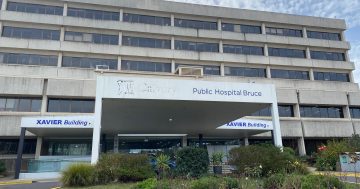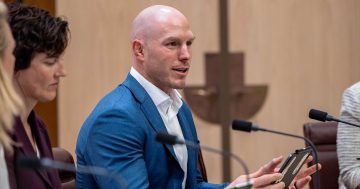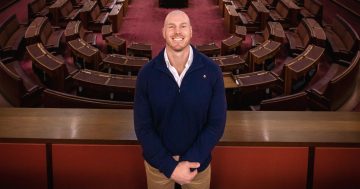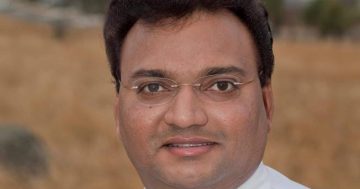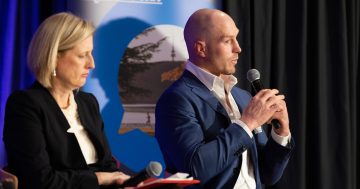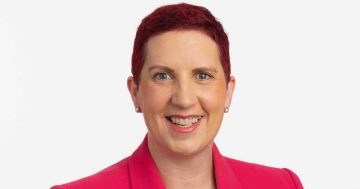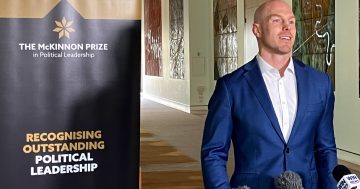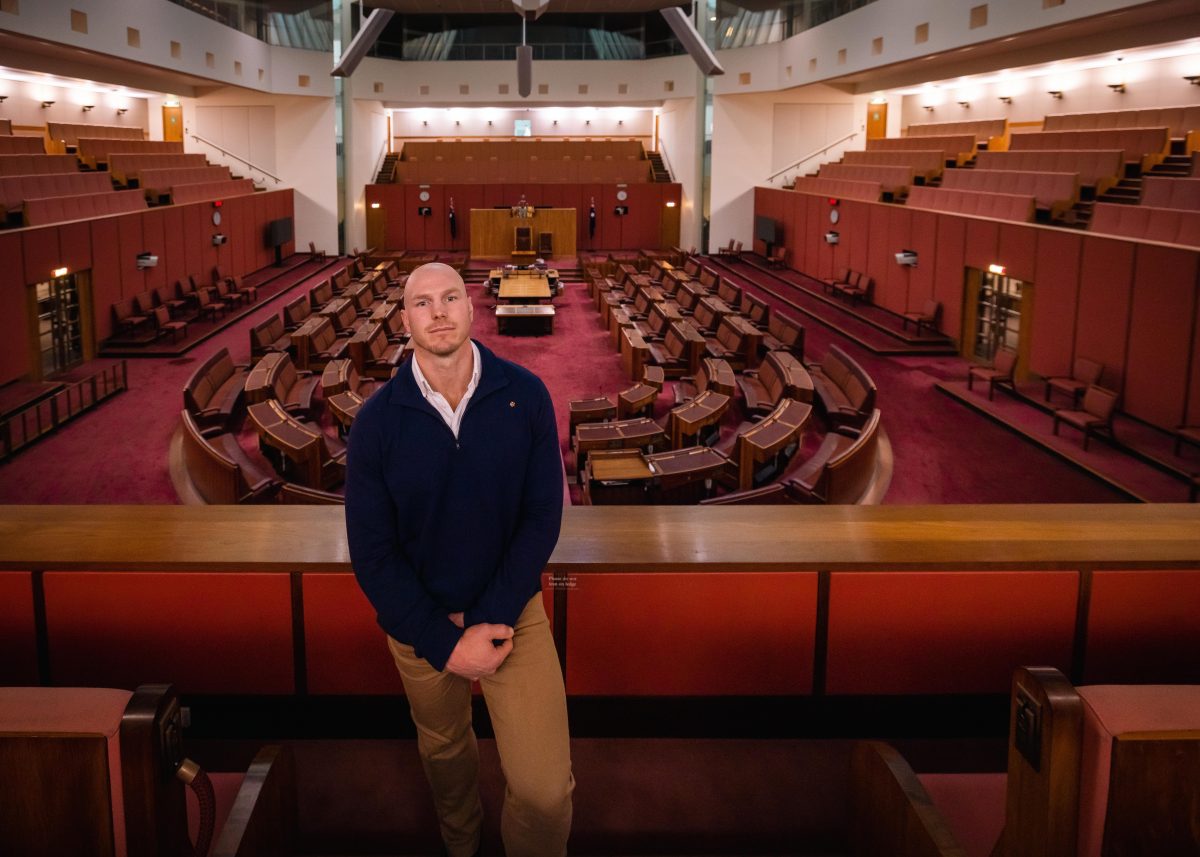
Senator David Pocock holds a crucial vote: “I intend to use that power in the best interests of the people in the ACT.” Photo: Lincoln Magee.
New Independent ACT Senator David Pocock has shrugged off the mantle of kingmaker, telling the Senate in his maiden speech on Tuesday that he comes into the Parliament as a peace broker.
Senator Pocock’s vote will be crucial to the government in the Senate, and with family and supporters in the gallery, he told the chamber how he intended to use it, highlighting the key issues that motivated him to run.
“I hope that through debate and collaboration, we can find ways to deal with these great challenges we face and make a real difference in the lives of those we represent,” he said.
“Not only is this the first time the ACT has had an independent Senator, it’s the first time we’ve had someone on the crossbench with the balance of power.
“I intend to use that power in the best interests of the people in the ACT.”
That includes securing the right of the Territory to make its own decisions on voluntary assisted dying, winning a breakthrough on the historic housing debt, and ensuring the Commonwealth’s neglect of local infrastructure needs ends.
“Here in the ACT, we have been denied rights held by the States,” Senator Pocock said.
“It is time for us to restore the right of the Territories to make decisions for themselves. To ensure that our legislative assembly here in the ACT gets to make decisions about the future of Canberrans, not MPs from around the country whose own constituents already enjoy these same rights.”
Senator Pocock said he wanted to achieve practical outcomes, such as getting the Commonwealth to forgive the ACT’s historic housing debt.
“It’s been done for Tasmania. It’s been done for South Australia. It’s time to do it for us,” he said.
Now that the ACT was no longer a safe Senate seat, investment in much-needed infrastructure, including community facilities, should now start to flow.
“The days of the ACT getting less than a quarter of our share of infrastructure funding by head of population are over,” he said.
Senator Pocock also said he would be arguing during his term for more equitable representation for the ACT in the Senate, an increase on the current two Senators that represent a population not much less than Tasmania, which has 12 Senators.
Among the bigger picture issues, he told the Senate that the Parliament had an opportunity to begin to restore the faith of Australians in both government and governance.
“From increasing transparency to the implementation of a robust integrity commission, to reforming political donations and truth in political advertising laws, we have a real chance to strengthen our democracy and ensure Australians can trust in the decisions that are being made in their name,” he said.
The Senator also urged greater protection for whistleblowers.
He backed moves to enshrine in the Constitution a First Nations Voice to Parliament, saying the Uluru Statement from the Heart was a generous offer to all Australians to “enshrine a Voice that can guide the treaty-making and truth-telling we need to move towards reconciliation”.
But there was no challenge greater, he said, than facing up to the climate and biodiversity crises confronting Australia and the world.
“I want to be part of making sure we don’t just end the climate wars, we win them,” he said.
“We win them and start to lead as a country on climate action and biodiversity conservation.”
Senator Pocock pledged to work for the people of the ACT, whether they voted for him or not.
“I’m committed to being accessible and transparent and I know that you will hold me accountable,” he said.













